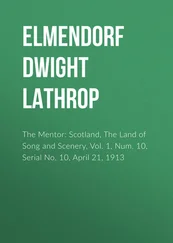With this in mind, Elias Rukla was not surprised when, five months after Johan Corneliussen returned from the international philosophy conference in Mexico, he received his telephone call from Fornebu Airport just outside Oslo and was told that he was on his way to New York — for good. Johan told him that he was entering the service of capitalism (a sarcasm, or perhaps it is called irony). He was not greatly surprised. For Elias did not doubt that Johan Corneliussen was still a Marxist, and what was he to do with that fact? He did, after all, possess a unique understanding, namely Marxism, which gave him a superior ability to interpret people’s dreams, once they found themselves where they did find themselves, here, in this society, that is. He could take advantage of this ability of his only by entering the service of capitalism, because capitalism is, after all, the only system that can turn these dreams to account and, not least, make use of dream interpreters. Marxism as such contains a moral element of an educational nature which is at variance with actually making use of this ability. But here was Johan Corneliussen telling him that he had been offered a dream job in New York. In a big consulting firm which had as its speciality to evaluate commercial ideas, concepts and designs, and whose clients were the big film companies, advertising agencies, book publishers and record producers. He would get rich, he said, in a strangely naive manner, and the moment he said it Elias Rukla wished wholeheartedly that Johan Corneliussen would get rich, although he also felt strangely disappointed, even cheated, that Johan would be gone for good and had not uttered a word about it beforehand. Only when he asked about Eva (and Camilla) and understood that they did not belong in Johan’s new future, as a philosophical consultant and dream interpreter in the USA, did he feel shocked, not least because Johan said, I’m leaving them in your care, which he just then interpreted as a sarcasm, hurtful and bewildering.
It was planned. The pattern was clear. In any case, since 1974 Johan must subconsciously have entertained plans to abandon philosophy, and at the international philosophy conference in Mexico he must have established contacts that made this possible. He had known for five months that he was going to leave them, for good. And not said a word to Elias. Had he told Eva, and when? How long had they both known, and what had she done when she was told? He never found out, for when a little later he rang the doorbell at the apartment on the ninth floor of the high-rise building at Grorud, he found a woman who would never again mention Johan Corneliussen’s name, or speak about him. But why did he leave her? That Elias never got to know, for not even at the time when they lived together did they let him in on the disagreements they must have had. The only thing he could ascertain was that Johan Corneliussen had left Eva, and not only Eva but also a daughter of six whom he obviously cherished above everything on earth, and since he did so, it must have been because his love had died. His love had died, and even though he cherished the child they had together more than anything in the world, it did not suffice to make him decide to take the child with him to the USA, because then he would also have to take along the child’s mother, and his love was dead. How long had his love been dead? Johan Corneliussen’s love, which had died. How long ago? It must have been dead when he returned from Mexico City and had made the decisive contact that made this leap possible. He had been planning it for five months, with his dead love behind the closed bedroom door, in the night, alone, or together with Elias Rukla (without saying anything), or other friends (also without saying anything, only thinking, racking his brains). Why, why? His love had died. But how was it possible that his love of Eva Linde could be dead?
And why this sarcasm directed at him, as the last word from friend to friend, before he quite simply put down the receiver? It made Elias feel confused, and it would continue to confuse him for years to come. For as it turned out, he was to occupy himself with Johan Corneliussen’s sudden and final departure even though he had no-one he could talk to about it. Why this sarcasm, followed only by his putting down the receiver? Why end a friendship of many years with such an unkind break? Now and then it occurred to him that it was not at all meant as a sarcasm, but that it was the expression of a naive, slightly confused wish, and that Johan, after having expressed his wish, felt embarrassed and put down the receiver in sheer perplexity. Or that he put down the receiver because the plane he was taking, to London (with a change of planes to New York), was just being announced for the last time and he had to run to catch it. Yes, this is how Elias would think now and then in the years to come, but regardless of how much he thought, Johan Corneliussen’s parting words left him at his wits’ end. Time and time again he would also carefully go over, in his mind, the last five months Johan spent in Norway and the conversations he had had with Elias then, either alone on those evenings at Grorud, or in town, or whenever all three of them, Eva, Johan and he, had been together, but without being able to find the least hint of a sign Johan might have given him that he was about to leave them. He did find some possible signs, of course, and he brooded over them, but all such possible signs dissolved into nothing as soon as he began to analyse them specifically as signs from Johan to him, and so he had to conclude: Johan left no signs, no message, except perhaps for this sarcasm at the very end, just before he had to put down the receiver and make a dash for the plane. Elias Rukla was bewildered. He was at the Fagerborg school when Johan Corneliussen rang him up. He took the telephone standing in the staff room. When Johan put down the receiver he understood nothing. He immediately went to the principal and asked to be released from his last three classes for the day, because something had happened to some intimate friends which required his presence, as he put it. Then he took the underground straight to Grorud.
Eva was home, and alone. She was calm, but a bit tired. She confirmed what had happened. It had all been settled. The separation papers signed by them both and all dispatched. There was no more to be said. As far as she was concerned, it would serve no purpose to talk any more about this. All the same she invited him for coffee, since he had come this long way to Grorud. Elias was astonished, even outraged, and showed it, first and foremost because he had not suspected anything. That … no … he understood nothing … and he was so bewildered that she started laughing. They were sitting side by side on the sofa, that was how she had set the table. Feeling concerned, Elias asked how she would manage, to which she replied that there would be no problems. As soon as she could see it all in perspective, that is. Well, yes, she was a bit tired, obviously. And suddenly she leaned her head against his shoulder. Yes, she put her head on his shoulder, making a strange shudder go through Elias Rukla, utterly different from anything he had previously experienced. No, no, he thought, this cannot be true, and to reassure himself about that, and to escape from this strange feeling that flowed through him, he discreetly patted her hand in all friendliness. They sat like that for a while, she with her head on his shoulder, he filled with a rapture he could not believe in, until he got up and said he had to go.
Bewildered and jittery, and driven by this unaccustomed rapture he had admittedly felt filling him to the brim, three days later he rang her up and invited her for dinner. They met in Petit, at Majorstua, and from the way she looked at him, addressed him, came forward and smiled at him, he understood that what before had been unthinkable had now become thinkable, and she walked back with him to his apartment in Jacob Aalls gate and stayed the night. Elias Rukla was then thirty-six years of age and could only shake his head at all the happiness which had so suddenly befallen him.
Читать дальше










